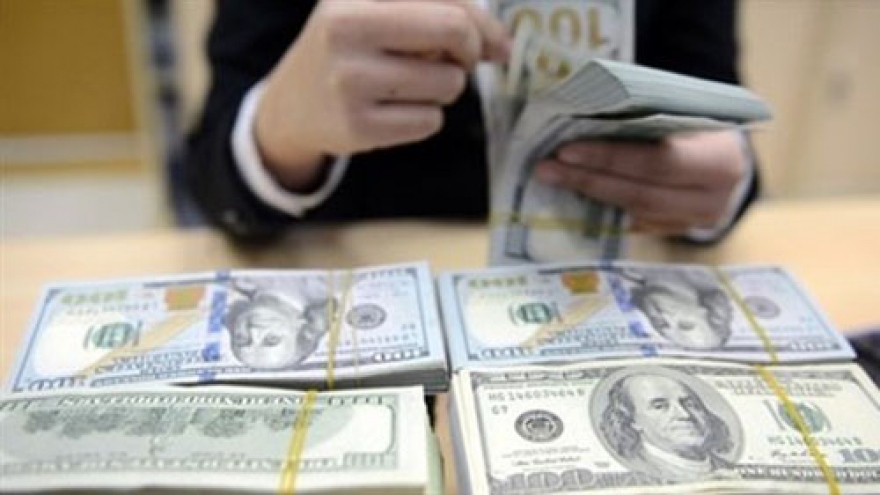Vietnam currency firmer against hard currencies
The Vietnam dong currency has strengthened against strong currencies since the surprise outcome of the US presidential election while the local gold price has edged down 4%.
In the four days after Republican Donald Trump’s election win, the dong rose 4% against the Japanese yen and nearly 3.5% versus the euro. Meanwhile, banks quoted gold at around VND35.7 million (US$1,594.8) per tael on November 13, a sharp decline from VND37.2 million before Election Day (November 8). A tael equals to 1.2 troy ounces.
The foreign exchange market became volatile in tune with global financial market movements, with the yen losing 6.7% against the U.S. dollar in less than 100 hours after the U.S. election and the euro falling 4.5%.
The yellow metal also retreated, tumbling from over US$1,300 to US$1,227 an ounce.
Before the election, Wall Street experts and investors forecast gold would hit U$1,500 an ounce on the backdrop of the dollar fall if Donald Trump won the White House race. On the contrary, the dollar would be firmer against the currencies of G7 industrialized economies if Hillary Clinton was the winner.
The dollar soared while the Dow Jones hit a record high of 18,847 and gold tumbled, breaking the usual pattern that risky assets would dip when a currency gets firmer.
In Vietnam, the dong remained stable against the greenback, hovering at VND22,360 to VND22,370 per U.S. dollar. Since early September, the domestic currency has lost a slight 0.13%.
The State Bank of Vietnam’s central rate has increased 0.62%, meaning the dollar has appreciated 0.62% versus the dong since early September and 0.76% since early this year. Banks and traders on the informal market have barely revised exchange rates, an indication that dollar supply is ample.
Notably, the dong has stabilized against the Chinese yuan. Since early this year, the yuan has dropped 4.6% against the dollar, the biggest fall in nearly 30 years.




